Related Research Articles

Sir Julius Caesar was an English lawyer, judge and politician who sat in the House of Commons at various times between 1589 and 1622. He was also known as Julius Adelmare.
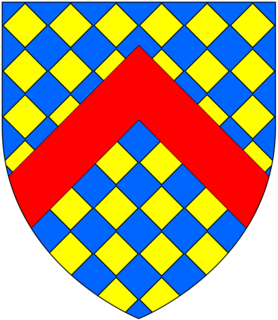
Sir Ferdinando Gorges was a naval and military commander and governor of the important port of Plymouth in England. He was involved in Essex's Rebellion against the Queen, but escaped punishment by testifying against the main conspirators. His early involvement in English trade with and settlement of North America as well as his efforts in founding the Province of Maine in 1622 earned him the title of the "Father of English Colonization in North America," even though Gorges himself never set foot in the New World.
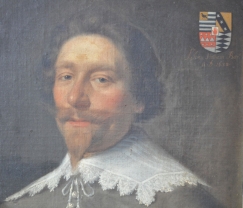
Sir John Hotham, 1st Baronet of Scorborough Hall, near Driffield, Yorkshire, was an English Member of Parliament who was Governor of Hull in 1642 shortly before the start of the Civil War. He refused to allow King Charles I or any member of his entourage to enter the town, thereby depriving the king of access to the large arsenal contained within. Later in the Civil War he and his son John Hotham the younger were accused of treachery to the Parliamentarian cause, found guilty and executed on Tower Hill.

Edward Somerset, 4th Earl of Worcester, KG, Earl Marshal was an English aristocrat. He was an important advisor to King James I, serving as Lord Privy Seal.

Sir Ralph Sadler or Sadlier PC, Knight banneret was an English statesman, who served Henry VIII as Privy Councillor, Secretary of State and ambassador to Scotland. Sadlier went on to serve Edward VI. Having signed the device settling the crown on Jane Grey in 1553, he was obliged to retire to his estates during the reign of Mary I. Sadlier was restored to royal favour during the reign of Elizabeth I, serving as a Privy Councillor and once again participating in Anglo-Scottish diplomacy. He was appointed Chancellor of the Duchy of Lancaster in May 1568.

Sir John Perrot served as lord deputy to Queen Elizabeth I of England during the Tudor conquest of Ireland. It was speculated that he was an illegitimate son of Henry VIII.

Sir John Fortescue of Salden Manor, near Mursley, Buckinghamshire, was the seventh Chancellor of the Exchequer of England, serving from 1589 until 1603.

Clearwell is a village and former ancient manor in the Forest of Dean, West Gloucestershire, England. A recent survey indicated that the population of Clearwell is approximately 350.
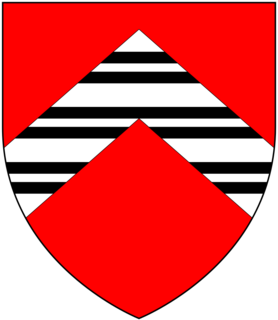
There have been two baronetcies created for different branches of the Throckmorton family, 6th cousins, both descended from Sir John Throckmorton, Under-Treasurer of England temp. King Henry VI (1422–1461). Both titles, which were in the Baronetage of England, are now extinct. The Throckmortons, originally of Throckmorton near Pershore, Worcestershire, trace their history back to the 12th century. In 1409 Sir John de Throckmorton, Under-Treasurer of England, married Eleanor Spinney, daughter and heiress of Guy Spinney of Coughton, Warwickshire, where the senior branch of the family, which bore the junior baronetcy, became established. The Coughton estate included in 1968 a dower house named "Spiney House, Coughton", named after that family. The senior Throckmorton Baronetcy, of Tortworth in the County of Gloucester, was created in the Baronetage of England on 29 June 1611 for William Throckmorton, of Coss Court, Tortworth, Gloucestershire, sixth in descent from John Throckmorton, younger son of Sir John Throckmorton, Under-Treasurer of England. The third Baronet sat as Member of Parliament for Gloucestershire and Wotton Basset. The title became extinct on the death of the fourth Baronet in a duel in 1682.

Sir George Throckmorton of Coughton Court in Warwickshire, England, was a Member of Parliament during the reign of King Henry VIII.

Sir Robert Throckmorton, KG, of Coughton Court in Warwickshire, was a Member of Parliament and a distinguished English courtier. His public career was impeded by remaining a Roman Catholic.
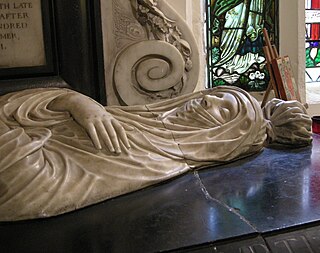
Elizabeth, Lady Berkeley, was an English courtier and patron of the arts.
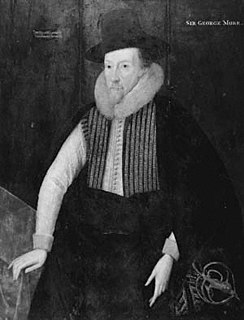
Sir George More was an English courtier and politician who sat in the House of Commons at various times between 1584 and 1625.

Sir Richard Berkeley of Stoke Gifford, Gloucestershire was MP for Gloucestershire in 1604. He had previously served as Sheriff of Gloucestershire in 1564, and as Deputy Lieutenant of Gloucestershire. He was knighted by Queen Elizabeth I in 1568. In 1595 he was appointed Lieutenant of the Tower of London. In 1599 he was appointed custodian of Robert Devereux, 2nd Earl of Essex, who was kept under house arrest at Essex House in London. He died in 1604, whilst serving as MP, and was buried in The Gaunts Chapel, Bristol, where exists an effigy of him, which chapel had been founded in 1220 by Maurice de Gaunt, a member of the Berkeley family.
John Throckmorton (1572–1623) was an English politician who sat in the House of Commons at various times between 1601 and 1611.
Robert Hopton (c.1575-1638) was an English landowner and politician who sat in the House of Commons in two parliaments between 1604 and 1622.

John Smith (1567–1640) of North Nibley in Gloucestershire, was an English lawyer and antiquary and was the genealogist of the Berkeley family. He served as a Member of Parliament for Midhurst in Sussex from 1621 to 1622.
George Carleton was a lawyer, landowner and Member of Parliament with strong Puritan sympathies. It has been suggested that he was the secret author of the Marprelate tracts, and both he and his third wife were prosecuted for their involvement in the Marprelate controversy. Ordered to appear daily before the Privy Council in April 1589, he died in early 1590 before a decision in the proceedings against him had been reached.

Thomas Reynolds-Moreton, 1st Earl of Ducie was the first Earl of Ducie.
Sir William Throckmorton, 1st Baronet (1579-1628) was an English landowner and investor in the settlement of Virginia.
References
- 1 2 Jan Broadway. "Throckmorton family". Oxford Dictionary of National Biography (online ed.). Oxford University Press. doi:10.1093/ref:odnb/72341.(Subscription or UK public library membership required.)
- ↑ Hasler, P. W., ed. (1981). "THROCKMORTON, Sir Thomas (1538/9-1607), of Tortworth, Glos.". The House of Commons 1558-1603. The History of Parliament Trust. Retrieved 20 January 2022.
- ↑ Smyth, John (1885). The Berkeley Manuscripts III. p. 312.
- ↑ Frith, Brian (1992). Bigland's Gloucestershire Collections. p. 1341.
- ↑ Gethyn-Jones, Eric (1982). George Thorpe and the Berkeley Company. p. 59.